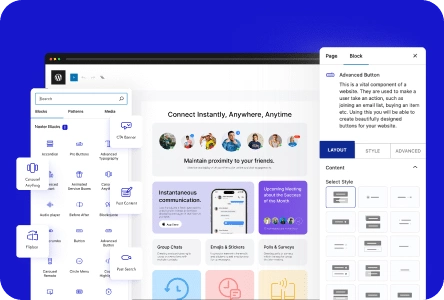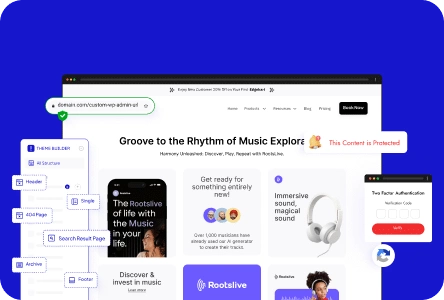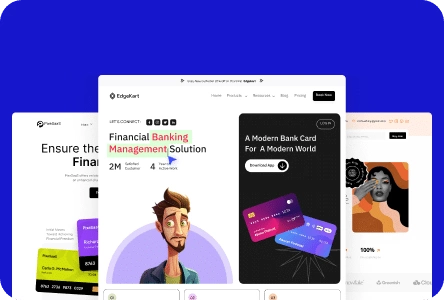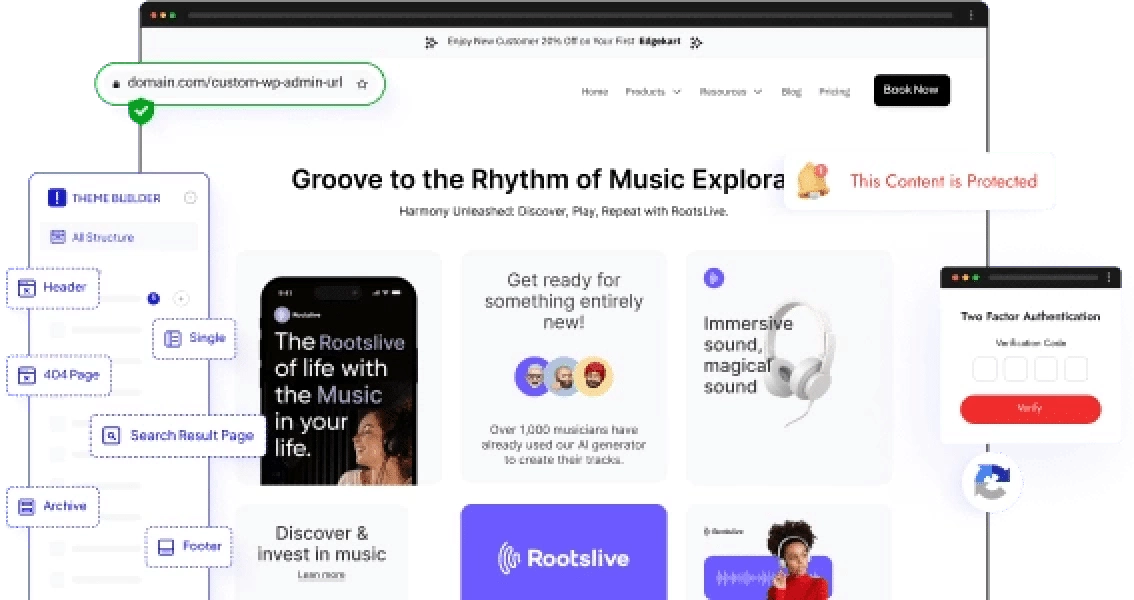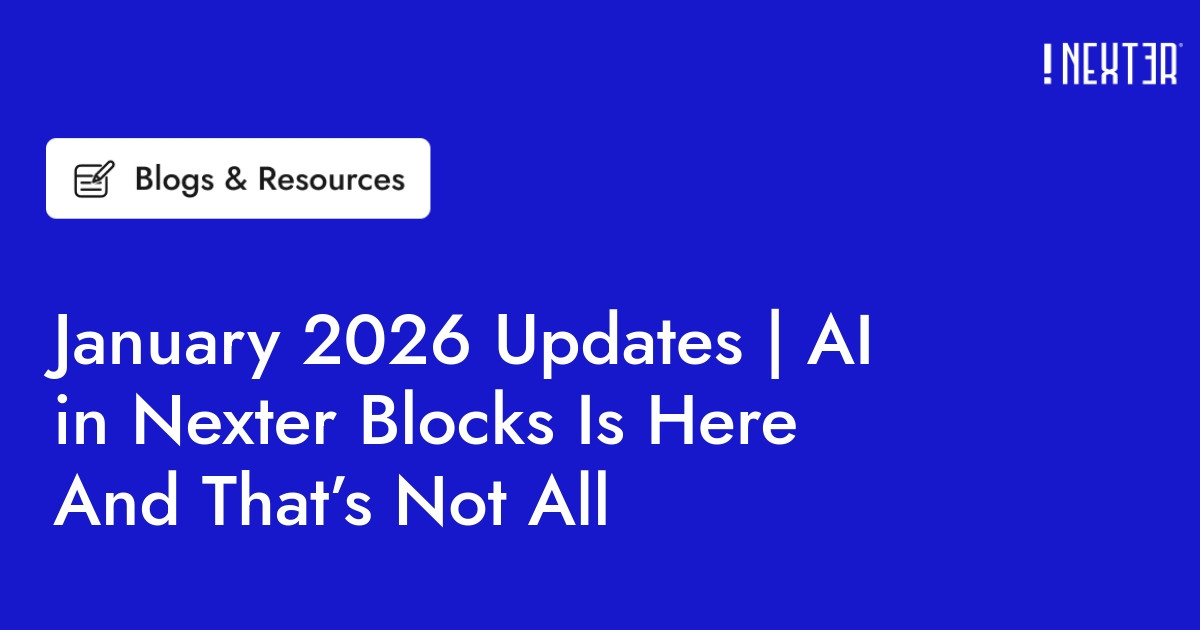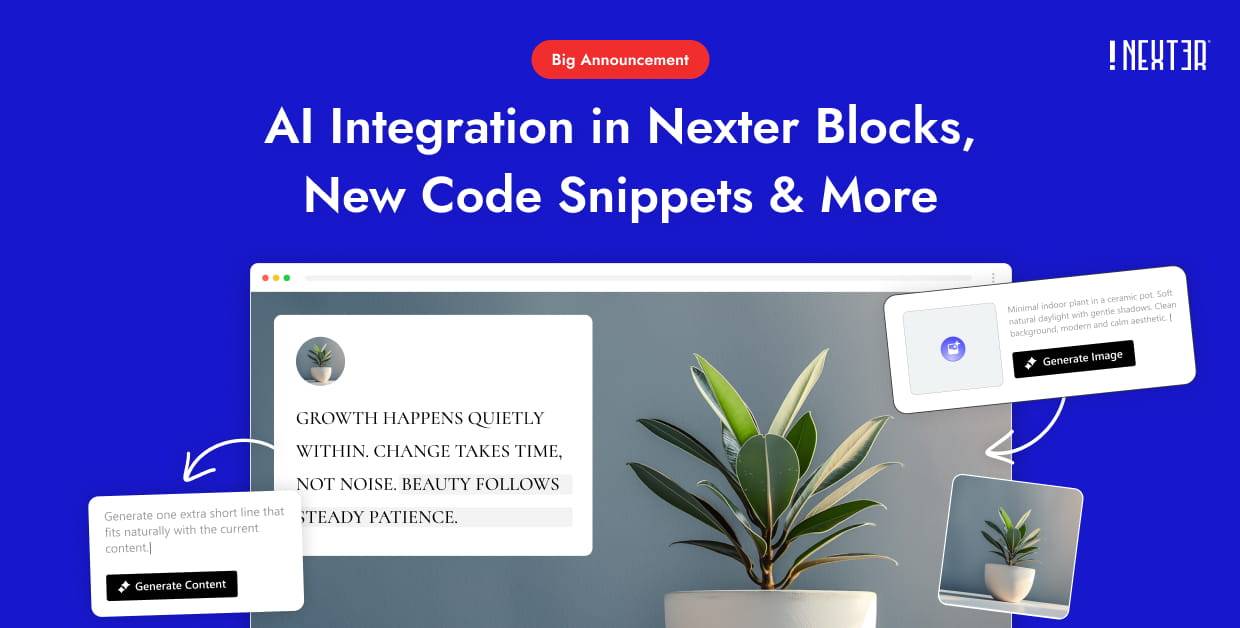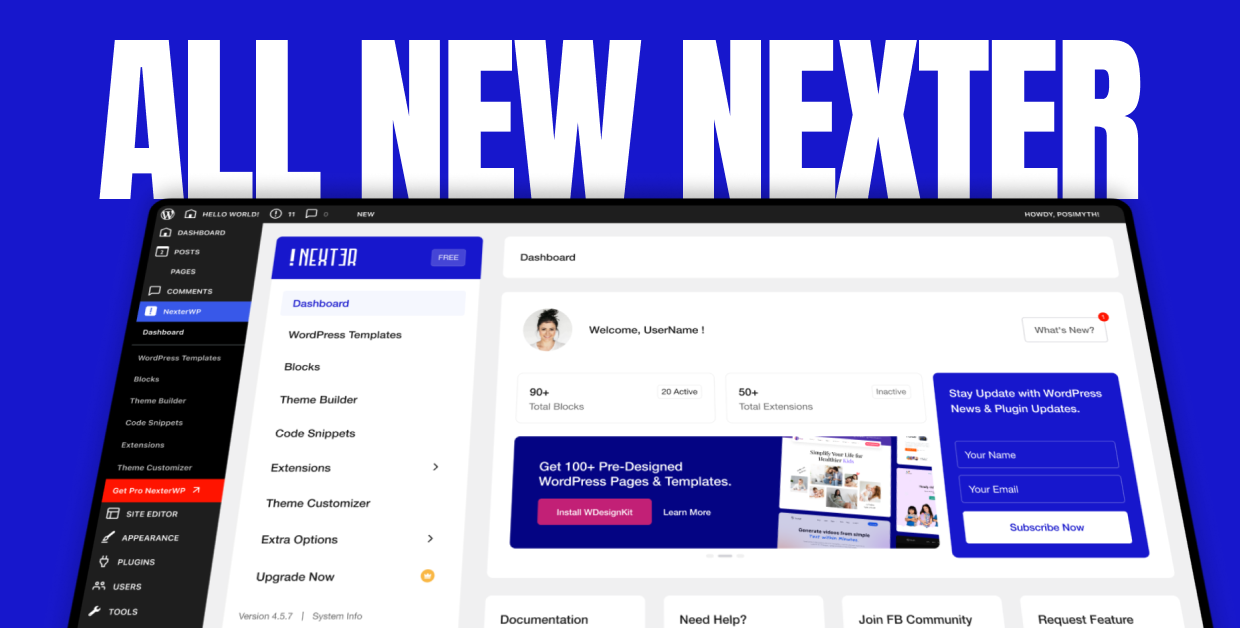Many people dive into creating an online presence without fully understanding the difference between a website and a blog. This guide on website vs blog: key differences explained for beginners will help clear up the confusion, so you can choose the right platform from the start.
Choosing the wrong format can make it harder to share updates, build trust, or connect with the right audience. Blogs are ideal for posting fresh content regularly and starting conversations, while websites are better for showcasing long-lasting content like services, portfolios, or business details.
The good news? Once you understand the key differences between blogs and websites, it becomes much easier to choose the right one for your needs.
Whether you’re looking to share ideas, grow a business, or simply provide useful information, this guide will help you pick the perfect platform to support your goals.
Let’s get started.
What is a Blog?
A blog is a kind of website where people regularly share information, ideas, or personal stories through posts. You can think of it like an online diary or a place to talk about different topics.
Blogs are updated often, so there’s always something new to read. That’s why people keep coming back, because they can find fresh articles on things they care about.
Key Features of a Blog
- New Posts Often: Bloggers keep adding new content to keep things interesting.
- Latest First: The newest posts show up at the top, so it’s easy to find the latest updates.
- Categories & Tags: These help group similar posts together, so readers can find more on the same topic.
Most blogs let readers join the conversation. You can leave comments, ask questions, or share your opinion right on the post.
People start blogs for many reasons. Some want to share what they know or love, some want to connect with others, and businesses use blogs to help people discover their products or services.
Example of Blog
Blogs come in many forms, each catering to different goals—whether it’s educating readers, sharing insights, promoting products, or building authority. Let’s look at two real-world examples to understand how blogs are used effectively.
Blogger
Blogger is a free blogging platform by Google that allows users to create and publish blogs with ease. It offers a simple interface, customizable templates, and seamless integration with other Google services.
Whether you’re sharing personal stories, building a brand, or exploring a niche topic, Blogger provides the tools to get started quickly, even if you have no coding experience.
What is a Website?
It’s an online space where people or companies provide useful content, services, or contact info. You access it using a web browser and a domain name (like example.com).
Key Features of a Website:
- Home Page: Main page with an overview
- About Page: Info about the person or business
- Contact Page: How to get in touch
- Product/Service Pages: What they offer
- Static Content: Doesn’t change often
Websites help promote businesses, showcase creative work, or provide useful info. They’re usually easy to navigate and help visitors find what they need quickly.
Example of Website
There are many types of websites, each serving different purposes. Here are some common types:
NexterWP
NexterWP is the official website of POSIMYTH Innovations, offering a complete WordPress solution that includes the Nexter Theme, Nexter Blocks, and Nexter Extensions.
The site features detailed pages on product features, use cases, documentation, and support, designed to help WordPress users build fast, flexible websites with ease.
Blog vs Website (Key differences)
A blog and a website serve different purposes and have key differences. Here are the main points to consider:
| Feature | Website | Blog |
|---|---|---|
| Purpose & Content Focus | Informational: showcases business, portfolio, or websites. | Interactive and engaging, sharing stories, insights, or expertise |
| Monetization Potential | Better for direct sales (e-commerce, services) | Better for direct income (ads, affiliate, or sponsored content) |
| SEO and Traffic Generation | Requires strategic optimization, may need blogs to boost traffic | Great for SEO and organic traffic, frequent updates attract visitors |
Choosing between a blog and a website depends on your specific goals and the type of content you want to create. Here’s a clearer breakdown to help you decide:
1. Website vs Blog: Purpose and Content Focus
- Blog: Ideal for sharing insights, personal stories, or expertise through regular posts. It fosters engagement through comments and social sharing, making it perfect for building a community and encouraging interaction.
- Website: More versatile and can serve multiple functions, such as showcasing a business, portfolio, or products. It typically consists of static pages that provide information without the need for frequent updates.
2. Website vs Blog: Monetization Potential
- Blog: Great for generating income indirectly by attracting an audience through quality content. You can monetize through ads, affiliate marketing, or sponsored posts as your readership grows.
- Website: This is better suited for direct sales, especially if you have an e-commerce component. While it may require a higher initial investment, it can effectively facilitate transactions and showcase products.
Want to discover how to make money from blogging? Check this blog: How to Monetize WordPress Blog [4 Easy Methods]
3. Website vs Blog: SEO and Traffic Generation
- Blog: Excellent for driving organic traffic through search engine optimization (SEO). Regularly updated content helps improve visibility and attracts visitors, allowing you to analyze audience behavior and refine your strategy.
- Website: While it can also be optimized for SEO, a static website may not attract as much traffic unless it includes a blog or regularly updated content.
Stay updated with Helpful WordPress Tips, Insider Insights, and Exclusive Updates – Subscribe now to keep up with Everything Happening on WordPress!
Wrapping Up
Think about the type of content you want to create. If you’re planning to share stories, updates, or insights regularly, a blog might be the perfect fit. On the other hand, if your focus is on presenting services, showcasing a portfolio, or providing essential business information, a traditional website could be more effective.
Also, consider your audience. A blog can help you connect and engage if they enjoy casual, conversational content. For a more polished and professional impression, a website might serve you better.
By understanding these differences, you can choose the right platform that aligns with your goals and audience preferences.
If you’re looking for a flexible solution that lets you build a blog, a website, or even both, Nexter is worth exploring. With its performance-focused theme, blocks, and extensions, Nexter makes it easy to create fast, modern, and fully customizable websites on WordPress, no matter what your vision is.
Why not take a look and see what you can create with Nexter?
FAQs on Website Vs Blog
Can I have both a website and a blog?
Absolutely! Many businesses and individuals have websites that include a blog section to share news, insights, or updates and improve SEO.
Do blogs rank better than websites in search engines?
Blogs often rank better because they’re updated frequently with fresh content, which search engines love. However, SEO also depends on structure, keyword use, backlinks, and user experience.
Is it easier to create a blog than a full website?
Yes. Blogging platforms like WordPress, Blogger, and Medium make it easy to start without much technical knowledge. Websites might require more planning and design effort.
Can a blog be used to make money?
Yes, many bloggers monetize through ads, affiliate marketing, sponsored posts, and digital products. But it requires consistency and audience-building.
Do I need a domain name for a blog?
While you can start a blog on a free subdomain (like yourblog.wordpress.com), having a custom domain (like yourblog.com) looks more professional and builds trust.
Can I convert a blog into a website later?
Yes. If you’re using a platform like WordPress, you can start with a blog and gradually build out additional pages to create a full website.

